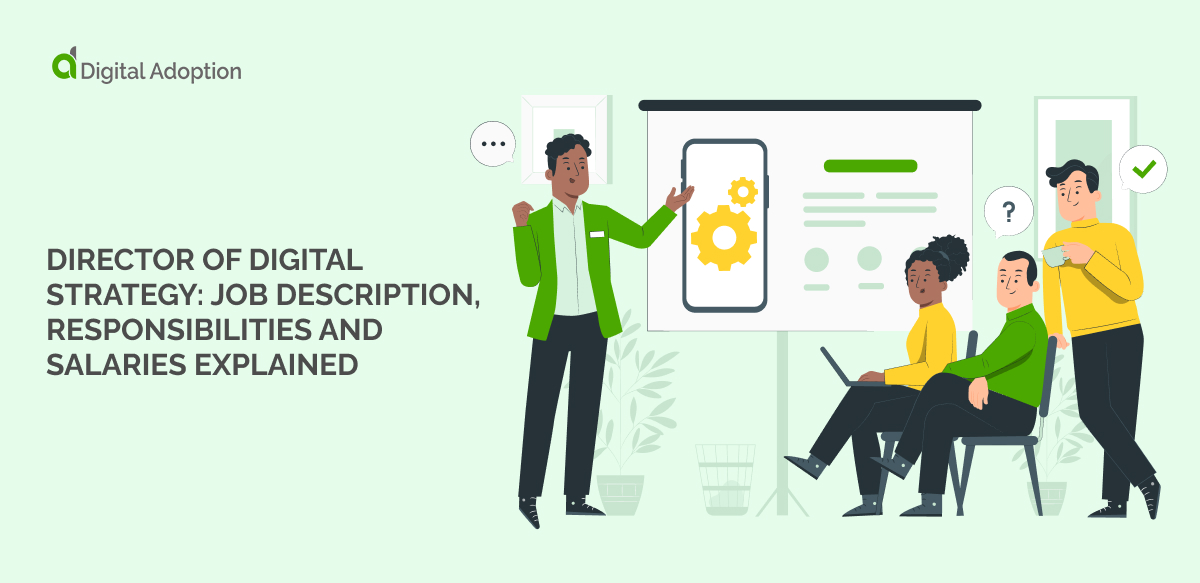According to Forrester digital transformation is not just about technology – it is about reimagining business.
The world-famous research firm specializes in many areas, including digital transformation.
Their insights can provide useful information for any business professional interested in this topic.
Below, we will explore Forrester’s digital transformation research, insights, and lessons, including:
- How they define digital transformation
- How companies should transform effectively
- Technologies that are enabling digital transformation
And much more.
Let’s start with the basics – how does Forrester view digital transformation?
How Forrester Views Digital Transformation
Each company or individual has a slightly different take on what digital transformation means.
Here is Forrester’s perspective on digital transformation:
- Digital transformation is about more than just technology. It is also about becoming agile, lean, and fast.
- Digital maturity is a must. Industry after industry is transforming, which means that businesses must become digitally mature in order to survive.
- Businesses must allocate technology investments effectively. Radical, game-changing investments help business technology become differentiators and growth engines.
- Innovation must spread throughout an organization. A single innovative business unit does no good if the entire organization doesn’t buy in – the entire organization must adopt and integrate innovations for them to actually have an impact.
- Organizations must rapidly experiment and adopt new technologies. The digital revolution is far from over. New technologies such as RPA, AR, VR, and AI will continue to transform and remake businesses from top to bottom.
This high-level overview gives us a good understanding of how Forrester sees digital transformation.
Below, let’s explore some of these topics in greater detail:
Forrester Digital Transformation: Key Insights and Takeaways
Below are a few of Forrester’s perspectives on digital transformation, broken down by topic:
Innovation
True innovation requires three essential components:
- Software
- The right culture
- Continuous innovation
On the one hand, software enables innovation.
But to continuously innovate, businesses must have the right culture and the right framework for innovation.
Forrester claims that fast, repeatable innovation is built upon four alignments:
- CEO-driven software competency
- Modular business design and business software building blocks
- Agile finance
- Blended business and technology teams
Elements such as these are critical for businesses that want to continually deliver high-impact, innovative digital transformations.
The Customer Experience
Today, many companies recognize the importance of the customer experience.
Customer experiences can be – and often are – competitive differentiators between brands.
However, Forrester takes this one step further.
They claim that employee engagement and cultural transformation drive customer experience.
There are a few reasons why:
- The systematic collection of employee feedback offers insight into customer perspectives and their experience
- When customer and employee feedback agree on the same issues, then these represent true problems in customer experience delivery
- Employees who are involved in optimizing the customer experience will be more engaged and be in a better position to make improvements
Today’s workforce is continuously evolving, meaning that businesses must carefully manage the employee experience in order to fuel customer success.
Retail
Some digital transformation efforts in retail are pointing the way towards “New Retail,” which will:
- Be omnichannel
- Deliver seamless customer experiences – both online and off
- Increase operational efficiency
Companies like Alibaba, Tencent, Starbucks, and Walmart are among these early adopters.
Retailers that want to keep up with the digital transformation curve should study and learn from these examples.
Banking
Banking for small- and medium-sized businesses will be completely upended, Forrester predicts.
New companies, such as Xero, Square, and Stripe, are offering a wide range of services that threaten established banks.
Unless established banks and financial organizations can transform successfully, they will face an uncertain future.
Though some banks have seen this looming threat, only a few are embarking on digital transformation.
Forrester claims that banks need to take a revolutionary approach to digital transformation … not an “evolutionary” approach.
They should:
- Accelerate the pace of their managed services digital transformations
- Focus on delivering great customer experiences
- Become more agile and customer-centric
- Innovate digitally
- Invent new business models or transform existing ones
Though digital businesses cannot be “built in a day,” banks that take the right approach can transform successfully and stay competitive in the digital era.
Picking the Right Partners for Digital Transformation
In another article, Forrester points out that organizations must transform the very way they deliver value.
This involves:
- Transforming away from a product-centric business
- Focusing on outcome delivery
- Pick partners that truly understand digital transformation
Also, they point out that the right technology matters.
Partners should have technology that can be used as a catalyst for transformation.
For instance, the right training platforms can reduce workforce training time.
Final Thoughts
This hardly covers the spectrum of Forrester’s perspectives on digital transformation.
They offer many other analyses on specific technologies, specific industries, and effective strategies for digital transformation.
However, the topics covered above can serve as good stepping stones for those who want to research Forrester’s ideas further.













